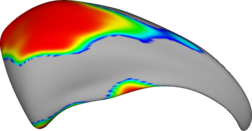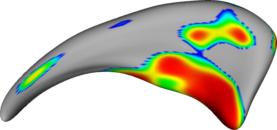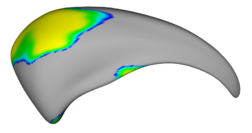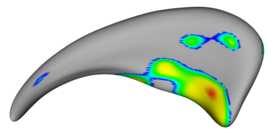Difference between revisions of "Projects:ShapeAnalysisOfCaudateAndCorpusCallosum"
From NAMIC Wiki
| Line 1: | Line 1: | ||
| − | Back to [[NA-MIC_Collaborations|NA-MIC_Collaborations]], [[Algorithm: | + | Back to [[NA-MIC_Collaborations|NA-MIC_Collaborations]], [[Algorithm:Stony Brook|Stony Brook Algorithms]], [[Algorithm:UNC|UNC Algorithms]] |
__NOTOC__ | __NOTOC__ | ||
= Shape Analysis for the caudate and corpus callosum data = | = Shape Analysis for the caudate and corpus callosum data = | ||
Latest revision as of 01:13, 16 November 2013
Home < Projects:ShapeAnalysisOfCaudateAndCorpusCallosumBack to NA-MIC_Collaborations, Stony Brook Algorithms, UNC Algorithms
Shape Analysis for the caudate and corpus callosum data
Our objective is to improve shape analysis of the caudate and to parcellate the corpus callosum based on function.
Description
- UNC applied shape analysis pipeline to a dataset of manually segmented caudates of males with and without schizoptypal personality disorders. Differences were found mainly on the right caudates. No differences were found for regional parcellations of the corpus callosum.
- The open source shape analysis pipeline was transfered and installed at Harvard PNL.
- Harvard applied the UNC shape analysis software to a new dataset of manually segmented caudates of females with and without schizotypal personality disorder. The results confirmed previous findings in the male dataset. Statistically significant shape differences for the right caudate were found (see Fig 1).
- A less stringent method to correct for multiple comparisons (false discovery rate; FDR) was implemented (UNC) and applied to the the male and female caudata datasets (see Fig 2).
Key Investigators
- BWH: Sylvain Bouix, Marek Kubicki, James Levitt, Marc Niethammer, Martha Shenton
- UNC: Martin Styner, Isabelle Corouge, Guido Gerig
- Georgia Tech: Delphine Nain, Allen Tannenbaum





